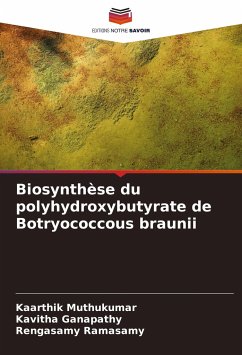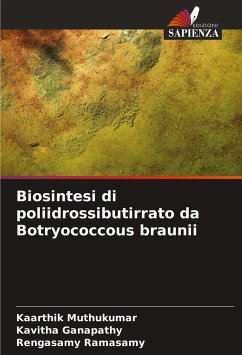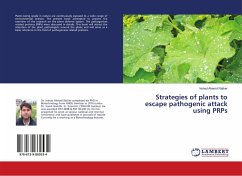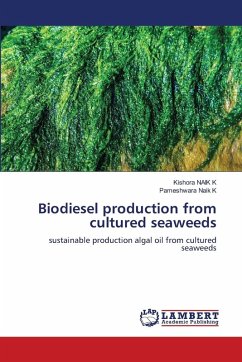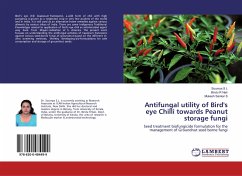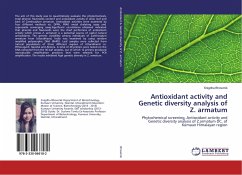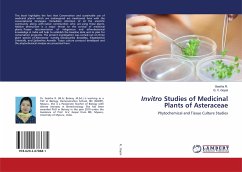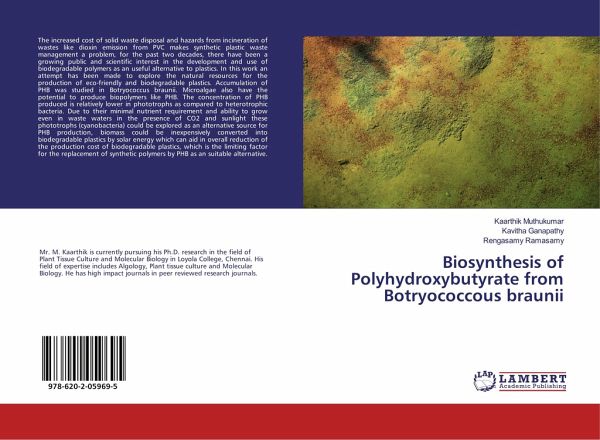
Biosynthesis of Polyhydroxybutyrate from Botryococcous braunii
Versandkostenfrei!
Versandfertig in 1-2 Wochen
24,99 €
inkl. MwSt.

PAYBACK Punkte
12 °P sammeln!
The increased cost of solid waste disposal and hazards from incineration of wastes like dioxin emission from PVC makes synthetic plastic waste management a problem, for the past two decades, there have been a growing public and scientific interest in the development and use of biodegradable polymers as an useful alternative to plastics. In this work an attempt has been made to explore the natural resources for the production of eco-friendly and biodegradable plastics. Accumulation of PHB was studied in Botryococcus braunii. Microalgae also have the potential to produce biopolymers like PHB. Th...
The increased cost of solid waste disposal and hazards from incineration of wastes like dioxin emission from PVC makes synthetic plastic waste management a problem, for the past two decades, there have been a growing public and scientific interest in the development and use of biodegradable polymers as an useful alternative to plastics. In this work an attempt has been made to explore the natural resources for the production of eco-friendly and biodegradable plastics. Accumulation of PHB was studied in Botryococcus braunii. Microalgae also have the potential to produce biopolymers like PHB. The concentration of PHB produced is relatively lower in phototrophs as compared to heterotrophic bacteria. Due to their minimal nutrient requirement and ability to grow even in waste waters in the presence of CO2 and sunlight these phototrophs (cyanobacteria) could be explored as an alternative source for PHB production, biomass could be inexpensively converted into biodegradable plastics by solar energy which can aid in overall reduction of the production cost of biodegradable plastics, which is the limiting factor for the replacement of synthetic polymers by PHB as an suitable alternative.



